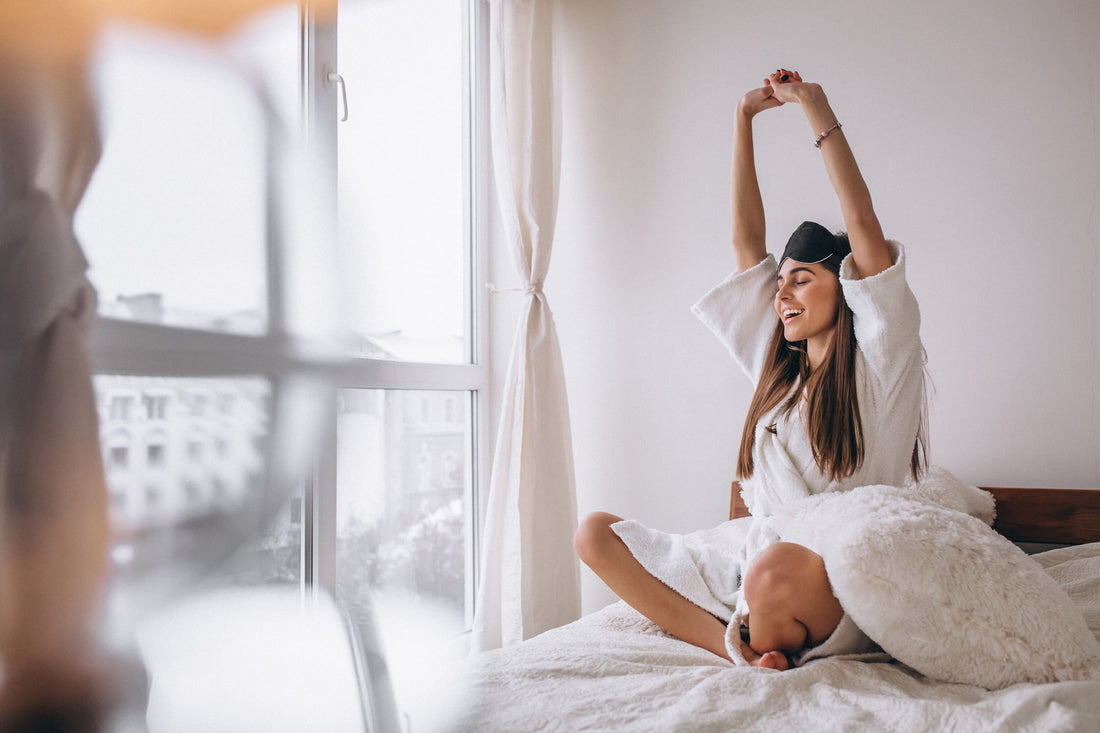What causes night sweats?
Vincent Carrié
We've all been there, whether as adults or children: waking up in the night to find yourself drenched in sweat.
It can often be caused by something trivial, and easily solvable, like your room being too warm, or your blanket or duvet being too heavy.
Sweating is a very normal way for your body to regulate its temperature, helping to release heat through evaporation if your core temperature rises too high.
If you have checked your sleeping environment, changed something that has stopped your sweating, and there are no repeat episodes, then they are not classified as night sweats and are typically not a sign of a medical problem.
However, if night sweats persist, the cause of your sweaty night could be health-related, so it's good to know if your sweating is excessive.
What is excessive sweating?
If you wake up repeatedly and notice sweating, you may need to change your bedding or night clothes regularly even if your room is cool, your doctor may want to check if you have other symptoms, to try to discover the causes of your night sweats.
The most common causes of night sweats
Here are the most common causes of a sweaty night's sleep:
- Hormones
- Worries and hormonal changes may be related to night sweats.
- Sweaty nights are often reported as a side effect of menopause, thought to be caused by significant changes in female production of certain hormones.
Low blood sugar (hypoglycemia)
Those who need to take insulin or diabetes medications may find that they have hypoglycemia (also called "low blood sugar") at night, and this may be accompanied by sweating.
Anxiety
Feelings of anxiety, fear and panic can have a big impact on your sleep.
If you're suffering from anxiety, this could be at the root of your night sweats.
Medicines
Some antidepressants, steroids, and pain relievers, as well as many other medications, can cause night sweats or flushing.
Talk to your doctor if you think your medication is causing night sweats, and check with your doctor before stopping any medication.
Alcohol or drug use
Both alcohol and drugs can cause your body temperature to rise, and therefore induce night sweats, especially when consumed at night.
Infection
As your body temperature rises to fight off infections, it makes sense that this could disturb your sleep with night sweats.
Talk to your doctor if you have any concerns about an infection you may have.
Hyperhidrosis
Finally, night sweats are often caused by hyperhidrosis, which can be a harmless condition that causes you to sweat too much.
Things you can do to help with hyperhidrosis (excessive sweating)
You may find that hyperhidrosis improves with age, but there are also things you can do, such as wearing loose-fitting clothing and moisture-wicking, breathable shoes.
Drinking alcohol or eating spicy food can also trigger sweating, so try to avoid these if you find they contribute to night sweats.
Hot flashes, night sweats and black cohosh.
If you are experiencing menopausal hot flashes or excessive night sweats, you may find that black cohosh has a positive effect in helping to relieve these menopausal symptoms (based on its traditional use).
Find out more about black cohosh and its benefits in this article, or shop the black cohosh range here.
What else can I do to help stop night sweats?
Many of the things you can do to prevent night sweats overlap with healthy sleep tips, including healthy eating, managing stress, staying hydrated, and exercising.
And don't forget to talk to your doctor if you're concerned about any aspect of your night sweats.
Sources
- https://www.mayoclinic.org/symptoms/night-sweats/basics/definition/sym-20050768
- https://www.nhs.uk/conditions/night-sweats/
- https://www.nhs.uk/conditions/night-sweats/
- https://www.healthline.com/health/what-causes-night-sweats-in-men
- https://www.diabetes.co.uk/nocturnal-hypoglycemia.html
- https://www.sleepfoundation.org/articles/common-causes-of-night-sweats
- https://pubmed.ncbi.nlm.nih.gov/12643362/
- https://www.nhs.uk/conditions/excessive-sweating-hyperhidrosis/
- https://www.nhs.uk/conditions/excessive-sweating-hyperhidrosis/

